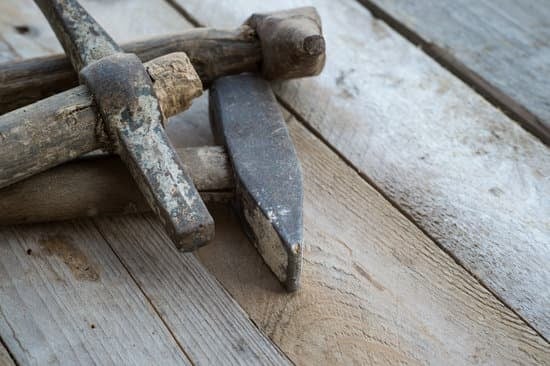Are you a homeowner in Canada wondering what home improvements are tax deductible? Understanding the ins and outs of tax deductible home improvement expenses is important for maximizing your deductions and avoiding potential risks and penalties.
In this article, we’ll explore eligible home improvement expenses for tax deductions, documentation required for claiming tax deductions, renovations that do not qualify for tax deductions, benefits of claiming home improvement expenses for tax deductions, tips for maximizing tax deductions, and how to stay updated on tax deductible home improvement expenses in Canada.
When it comes to home ownership, making improvements and renovations can be costly. However, some of these expenses may be eligible for tax deductions in Canada. It’s crucial to understand which home improvement expenses qualify for deductions in order to take advantage of potential savings on your taxes while staying compliant with the law.
In this comprehensive guide, we’ll delve into the specifics of what qualifies as eligible home improvement expenses for tax deductions in Canada. We’ll also discuss the documentation required for claiming these deductions, as well as the potential risks and penalties associated with incorrectly claiming home improvement expenses. Whether you’re considering a major renovation or simply looking to maximize your potential savings, understanding the intricacies of tax deductible home improvements is essential.
Eligible Home Improvement Expenses for Tax Deductions
Homeowners in Canada can benefit from tax deductions on eligible home improvement expenses. These deductions can help reduce the overall tax bill, making it important to understand what home improvements are tax deductible in Canada. Here are some eligible home improvement expenses for tax deductions:
- Energy-efficient upgrades: Installing energy-efficient windows, doors, insulation, and heating systems can qualify for tax deductions.
- Accessibility renovations: Home improvements that make a property more accessible for individuals with disabilities, such as adding wheelchair ramps, wider doorways, and accessible bathrooms, may be eligible for tax deductions.
- Renewable energy installations: Expenses related to installing solar panels, wind turbines, or geothermal heat pumps can qualify for tax deductions.
It’s important to note that the Canada Revenue Agency (CRA) may have specific guidelines and requirements for each type of eligible home improvement expense. As a result, homeowners should keep detailed records and documentation to support their claims.
In order to claim these expenses for tax deductions, homeowners will need to provide evidence of the cost of the improvements along with any receipts or invoices. Additionally, it is advisable to keep a record of when the improvements were made and by whom. This documentation will be essential if the homeowner is audited by the CRA.
Documentation Required for Claiming Tax Deductions on Home Improvements
When it comes to claiming tax deductions on home improvements in Canada, proper documentation is essential in order to support your claims. The Canada Revenue Agency (CRA) requires specific documentation to prove that your home improvement expenses qualify for tax deductions. Without the necessary documentation, you may not be able to claim the tax benefits you are entitled to.
To ensure that you are properly documenting your home improvement expenses for tax deductions, consider the following:
- Keep all receipts and invoices: Any expenses related to eligible home improvements should be supported by detailed receipts and invoices. This includes materials, labor costs, and any professional fees.
- Obtain a Compliance Certificate: For certain energy-efficient home improvements, such as installing solar panels or geothermal heat pumps, you may need a compliance certificate from a qualified professional to validate your claim.
- Maintain records of before-and-after: In some cases, it may be beneficial to have photographic evidence of the condition of your home before and after the improvement project. This can help support your claim in case of an audit.
By keeping thorough and accurate documentation of your home improvement expenses, you can ensure that you are ready to support your claims for tax deductions when filing your taxes with the CRA. It is always recommended to consult with a tax professional or accountant if you have any questions about the documentation requirements for claiming tax deductions on home improvements.
In addition to collecting and maintaining all necessary documentation, homeowners should also be aware of the time limit for retaining these records. The CRA typically requires taxpayers to keep supporting documents for at least six years from the end of the taxation year to which they relate. Keeping organized records will make it easier for you to maximize your tax deductions while staying compliant with CRA regulations.
Renovations That Do Not Qualify for Tax Deductions in Canada
When it comes to home renovations, it’s important to understand which expenses qualify for tax deductions in Canada and which do not. While many home improvement projects can provide tax benefits, there are some renovations that do not qualify for tax deductions. Understanding the criteria for non-eligible renovation expenses is crucial for homeowners looking to make the most of their tax benefits.
Non-Qualifying Renovation Expenses
Certain home improvements are considered personal or cosmetic in nature and therefore do not qualify for tax deductions in Canada. This includes renovations such as landscaping, swimming pools, hot tubs, and other outdoor leisure facilities. Additionally, any expenses related to regular repairs or maintenance do not qualify for tax deductions. Homeowners should also be aware that any improvement expenses incurred by a tenant or used for rental purposes will not be eligible for tax deductions.
Understanding Capital Improvements
While certain home improvements may not qualify for immediate tax deductions, they can still have an impact on your taxes in the future. Capital improvements, such as adding a new roof or renovating a kitchen, can increase the cost basis of your home.
This means that when you sell your home, these improvements can potentially reduce your capital gains taxes. It’s important to keep detailed records of all capital improvements made to your home in order to take advantage of these potential tax benefits in the future.
Consulting With a Tax Professional
Navigating the complex world of tax-deductible home improvement expenses can be challenging. To ensure that you are maximizing your tax benefits while following all relevant regulations, it’s advisable to consult with a qualified tax professional. They can provide personalized guidance based on your specific situation and help you identify which renovations qualify for tax deductions in Canada while avoiding potential risks and penalties associated with incorrect claims.
Benefits of Claiming Home Improvement Expenses for Tax Deductions
When it comes to home improvement expenses in Canada, understanding what is tax deductible can help homeowners save money and maximize their investment. By knowing which expenses qualify for tax deductions, homeowners can take advantage of potential benefits come tax time.
Certain home improvement expenses are eligible for tax deductions in Canada, including renovations that improve the functionality, efficiency, or accessibility of a home. This can include expenses such as adding a wheelchair ramp, upgrading heating and cooling systems for energy efficiency, or making structural changes to accommodate medical needs. These deductions can result in significant savings for homeowners and provide an incentive to make necessary improvements to their properties.
Documentation is key when claiming tax deductions on home improvements in Canada. Homeowners must keep detailed records of their expenses, including receipts, invoices, and contracts with service providers. Without proper documentation, it may be challenging to prove the eligibility of home improvement expenses for tax deductions.
It’s important for homeowners to stay informed about what home improvements are tax deductible in Canada. Staying updated on the latest regulations and guidelines from the Canada Revenue Agency (CRA) can help ensure that homeowners maximize their potential tax benefits while avoiding any potential risks or penalties associated with incorrectly claiming home improvement expenses.
| Home Improvement Expenses | Tax Deductible |
|---|---|
| Energy-efficient upgrades | Yes |
| Accessibility renovations | Yes |
| Cosmetic upgrades | No |
Tips for Maximizing Tax Deductions on Home Improvements
Plan Your Home Improvements Wisely
When considering home improvements that you want to make tax deductible, it’s important to plan wisely. You should prioritize projects that not only improve the value and functionality of your home but also qualify for tax deductions. Consider consulting with a tax professional or accountant to help you identify which improvements are eligible for deductions and which are not.
Keep Detailed Records
To maximize your tax deductions on home improvements, it’s crucial to keep detailed records of all expenses related to the renovation or improvement project. This includes receipts for materials, labor costs, permits, and any other related expenses. These records will provide necessary documentation when claiming deductions on your tax return. Without proper documentation, you may not be able to claim the deductions you’re entitled to.
Take Advantage of Available Tax Credits and Incentives
In addition to deductions for home improvement expenses, there may be specific tax credits and incentives available for certain types of renovations or upgrades. For example, energy-efficient upgrades such as installing solar panels or upgrading to energy-efficient windows and doors may qualify for additional tax credits. Be sure to research and take advantage of any available programs that can further maximize your tax benefits for home improvements.
Potential Risks and Penalties for Incorrectly Claiming Home Improvement Expenses
When it comes to claiming home improvement expenses for tax deductions in Canada, it is crucial to ensure that you are compliant with all the rules and regulations set by the Canada Revenue Agency (CRA). Failing to do so can result in potential risks and penalties.
One of the main risks is that your claim may be denied, leading to a significant financial setback. In addition, incorrect claims can also trigger audits by the CRA, which can be time-consuming and stressful.
The penalties for incorrectly claiming home improvement expenses in Canada can include hefty fines and interest charges on any unpaid taxes owed as a result of the incorrect claim. In some cases, individuals may also face criminal charges if the CRA determines that there was intentional fraud or misrepresentation involved in the claim.
It’s important to note that ignorance of the rules is not a valid defense, so it’s essential to educate yourself on what home improvements are tax deductible in Canada and ensure full compliance with the CRA guidelines.
To avoid these potential risks and penalties, it’s advisable to seek professional advice from a tax accountant or legal expert specializing in Canadian tax law. They can provide guidance on eligible expenses, proper documentation, and how to accurately report home improvement expenses for tax deductions. Additionally, staying informed about updates and changes in tax laws related to home improvements is crucial for avoiding penalties and maximizing your potential deductions.
| Potential Risks | Penalties |
|---|---|
| Denial of claim | Hefty fines and interest charges |
| Triggering audits by CRA | Criminal charges in cases of intentional fraud |
How to Stay Updated on Tax Deductible Home Improvement Expenses in Canada
In conclusion, understanding which home improvements are tax deductible in Canada is essential for homeowners looking to maximize their potential tax savings. By familiarizing themselves with the eligible expenses and required documentation, homeowners can ensure that they are accurately claiming tax deductions on their home improvements.
It is important to stay informed about any updates or changes to the tax laws and regulations regarding home improvement expenses in Canada, as this can impact the eligibility of certain renovations for tax deductions.
While certain renovations may not qualify for tax deductions, there are still numerous benefits to claiming eligible home improvement expenses. Not only can it help offset the costs of renovating and maintaining a home, but it can also lead to significant tax savings for homeowners. Additionally, by maximizing their tax deductions on home improvements, homeowners can potentially increase the overall value of their property while reducing their taxable income.
To stay updated on tax deductible home improvement expenses in Canada, homeowners should regularly consult reliable sources such as the Canada Revenue Agency’s website or seek advice from qualified professionals. Keeping thorough records of all home improvement expenses and remaining vigilant about any changes to the tax laws will enable homeowners to accurately claim eligible deductions while minimizing the risk of penalties for incorrectly claiming expenses.
By staying informed and proactive, homeowners can effectively navigate the complexities of tax deductible home improvement expenses in Canada and maximize their potential savings.
Frequently Asked Questions
Can I Claim Home Renovations on My Taxes in Canada?
In Canada, you typically cannot claim home renovations on your taxes. However, if the renovations are for medical reasons to accommodate a disability, you may be able to claim them as medical expenses.
Is a Bathroom Remodel Tax Deductible?
Generally, a bathroom remodel is not tax deductible unless it is specifically done for medical reasons to accommodate a disability. In that case, you may be able to claim it as a medical expense on your taxes.
What Home Bills Are Tax Deductible?
Home bills that are typically tax deductible in Canada include mortgage interest, property taxes, home office expenses (if you run a business from home), and expenses related to earning rental income from part of your home. It’s important to consult with a tax professional for specific advice tailored to your situation.

I’m thrilled to have you here as a part of the Remodeling Top community. This is where my journey as an architect and remodeling enthusiast intersects with your passion for transforming houses into dream homes.





